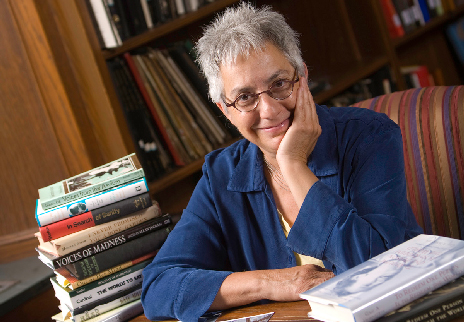
Research psychologist & author Gail Hornstein, PhD
To have allies who get in that foxhole with you and try to figure out strategies when things are going bad…I’ve waited all my life for something like that.
WILSONVILLE, Ore. (PRWEB)
May 12, 2020
In an article published in the journal Psychosis, Gail Hornstein, PhD, Mount Holyoke College Professor Emerita of Psychology (and her co-authors Emily Robinson Putnam and Alison Branitsky), present the first set of results from their national study of Hearing Voices Groups (HVGs). Their project is the largest and most in-depth examination of such groups ever conducted, and the first to be based in the US. HVGs offer an alternative to traditional mental health interventions focused on stopping or trying to block experiences classified as “hallucinations.” Although these groups have spread to 30 countries on five continents and are rapidly expanding across the US, few studies have analyzed their effectiveness.
The researchers recruited a diverse sample of 113 HVG members from across the US, who completed detailed questionnaires and interviews about whether and how their lives have changed since participating in the group. Results indicated that the egalitarian and non-prescriptive nature of these groups, where support is mutual and power is shared, as well as the openness to a multiplicity of understandings and strategies regarding voice hearing, were crucial to reducing distress and enabling more effective coping. As one participant said, “To have allies who get in that foxhole with you and try to figure out strategies when things are going bad is just invaluable . . . I’ve waited all my life for something like that.” Although the researchers found that no one outcome is sought by all HVG members, thus precluding any single measure of group effectiveness, 79% of participants in this study reported experiencing helpful changes in their voices, their interpersonal relationships, and/or how they understood their voices as a result of attending the group. As one member put it, “I can feel and act more like a person and less like a problem.” Many participants were able to return to work or school, get off disability, and make less use of hospital or crisis services. The availability of both in-person and online groups added flexibility and increased access.
“Our findings significantly strengthen the evidence base for the Hearing Voices approach,” said Dr. Hornstein. “Mental health professionals often wonder whether these groups work, and if so, how. Our 3-phase model explains how the unique elements that distinguish HVGs from other kinds of clinical or support groups work together to enable significant transformation to occur.”
The paper highlights the importance of including people with lived experience as key members of the team in studies like this. “Given the long and distressing history of psychiatric patients being recruited for research studies without their consent or for purposes not fully disclosed to them, we see our intentional inclusion of voice hearers on the team at every stage of the project as an important corrective and encourage other researchers to move toward this goal in their own work,” the authors note.
They emphasize that HVGs can be integrated into traditional mental health settings, at a significant cost savings to providers and insurers as compared with more expensive and less effective approaches currently in widespread use. “We hope this research will encourage adoption of HVGs in a variety of healthcare and social services,” Dr. Hornstein said. “We are way behind the UK and Europe in making this powerful alternative available across the US.”
The research was made possible by a grant from Open Excellence. The mission of Open Excellence is to connect the passion of private philanthropy with the world’s top researchers and innovation to bring recovery–based care and supports to every community. Dr. Hornstein is the advisor to Open Excellence’s Hearing Voices Research and Development Fund.
Contact: Gail A. Hornstein, PhD
ghornste@mtholyoke.edu
Share article on social media or email:

